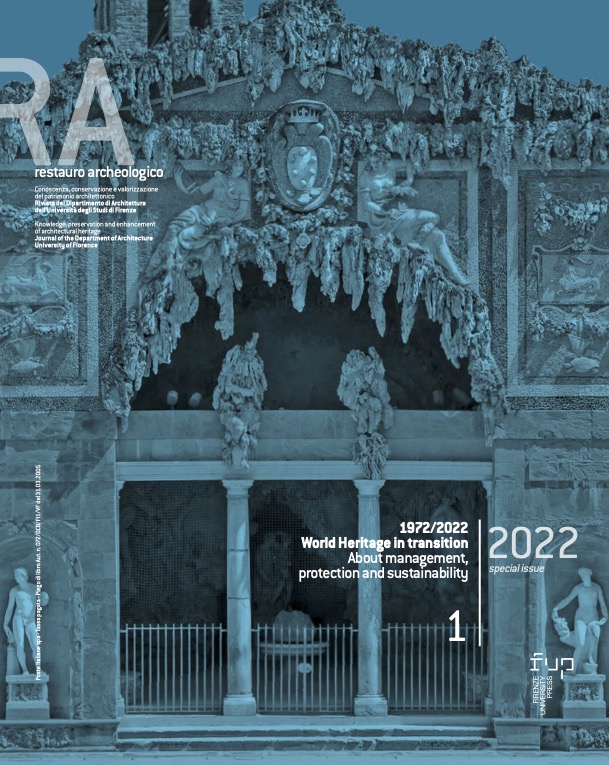Published 2023-02-03
Keywords
- Cultural heritage,
- War,
- Destruction,
- Protection,
- Restoration
How to Cite
Abstract
Photography testifies the works lost during the wars and the efforts to protect them and allows their transmission to future generations to perpetuate their memory or to allow their eventual restoration as it is the only remaining evidence of the buildings that have been destroyed, totally or partially. In Italy in 1915 it was decided to secure the most important mobile works of art by transporting them to shelters far from the front. As for the monuments, protection occurs in different ways. On the eve of the Second World War the problem recurs exponentially, air vehicles have made considerable progress and given the scarcity of resources, many monuments remain exposed. If in the First World War the loss of cultural heritage is relatively low, in the following the strategic bombings have caused profound destruction in addition to the great loss of human life. Finally, in the latest armed conflicts there is also a tendency to strike at the identity symbols of the enemy or the adverse religious ones.


